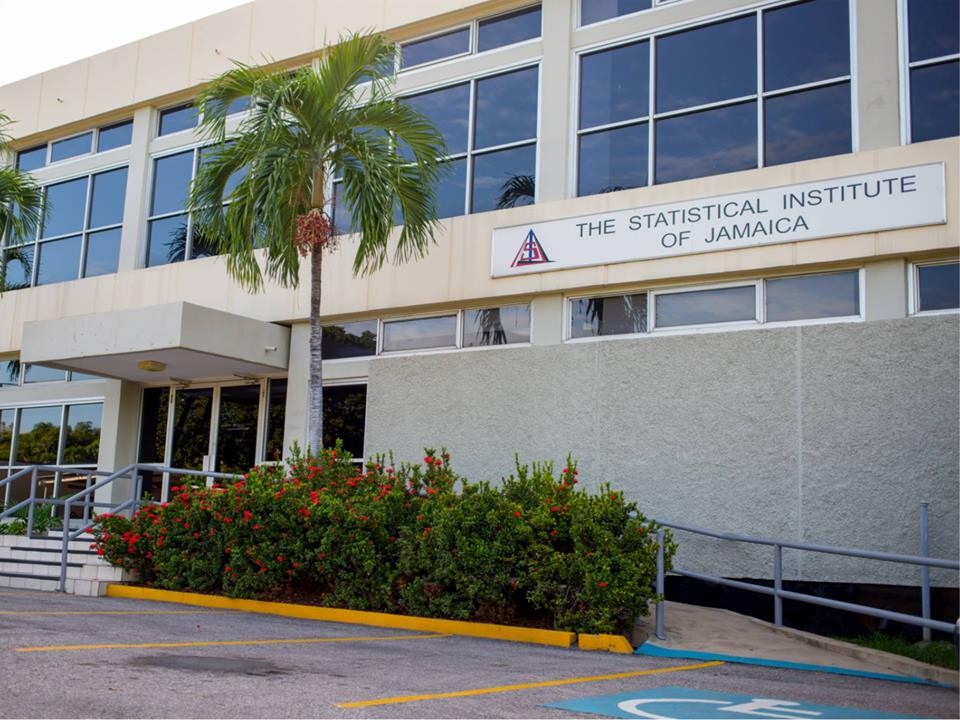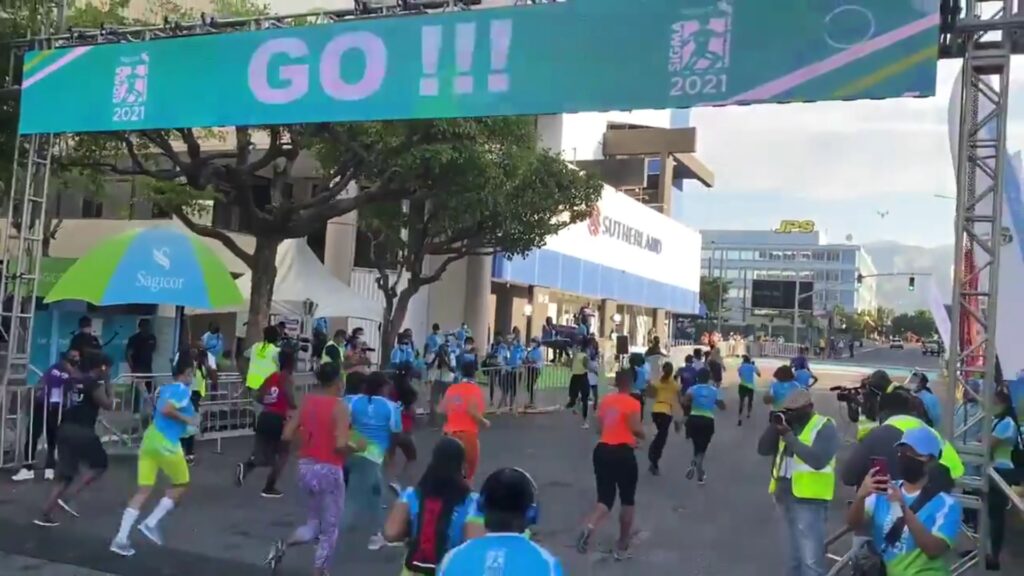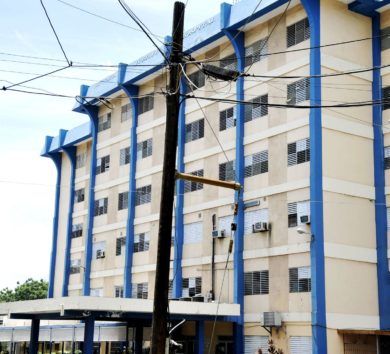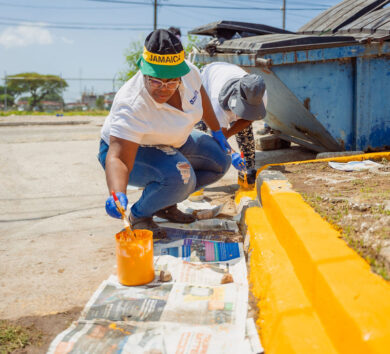

The following is Opposition Senator Gariela Morris’ contribution to the State of the Nation debate, delivered in the Senate on Friday (July 16).
As I rise to contribute to my first State of the Nation debate, I cannot help but disagree with the rosy picture which has been painted by many of the government senators.
I rise at a time when the state of the nation, for the ordinary Jamaican, is troubling- from rising crime, gas prices, food costs, educational uncertainty, a health crisis, and an economic downturn. The country faces so many threats to its ability to continue. At the core of these prevailing crises, the crushing impact on our youth cannot be understated.
And so, while strides have been made, we cannot rest on our laurels for there is still so much to accomplish if we truly want to make Jamaica the place to live, work, raise families and do business.
Without equivocation or fear of contradiction, I am sure we can all agree that the pandemic has been devastating for the economic and social life of many Jamaicans. I have witnessed lives destroyed by its direct and indirect consequences. However, I am hopeful. I am hopeful that like a phoenix rising from the ashes, we will move forward. I have also observed the resilience of our people, in particular our youth who have harnessed the opportunities in the crisis to start new businesses, learn and hone new skills and diversify their streams of income. Therefore, it is important as we have discussions surrounding our recovery from the impact of COVID-19 that the conversation is not limited to returning to life pre-pandemic, but it is extended to exploit the opportunities the pandemic has created, learn from the lessons taught and, above all, revolutionise our thinking to not merely recover but to thrive.
Youth Skill Training and Economic Opportunities
The harsh reality is that the impact of COVID-19 on the labour market has disproportionately affected young people, especially under the age of 34. According to STATIN’s July 2021 Jamaican Labour Market Impact of COVID-19 Survey, approximately 21.06 per cent or 35,900 individuals between the ages of 14 and 24 lost employment during the height of the pandemic. This was even more acute among the 25–34-year-old age category which lost 42,300 jobs. The report highlights that this age group suffered the greatest decline in employment across the labour force. Cumulatively, the
under 35 age group in our country lost 78,200 jobs. Even more chilling, according to the STATIN Labour Force indicators, the youth unemployment rate has risen to 24 per cent, an increase of over five per cent from last year.

The reason for the lost jobs is clear – the pandemic. But we cannot bury our heads in the sand and only blame the pandemic. If anything, the pandemic has revealed a faultline in our labour market, as most of our young people work in sectors vulnerable to economic shocks such as tourism, the BPO industry and the informal economy.
This makes their job security almost non-existent. The way we improve this reality is not merely to reconstruct the pre-2020 economy, with its many economic disadvantages for young people, but to create a truly 21st Century economy focused more on technology, skills training, and vocational courses.
The work of the Heart Trust NTA has been laudable, and its work must be encouraged. However, more can and must be done if we are to ensure that our population becomes more highly skilled to properly participate in tomorrow’s economy. The Opposition supports the Government’s plan to construct state of the art STEM schools. Nevertheless,
time is of the essence and there is much more to be done in the short term.
As such, I recommend the following:
That the Ministry of Education accelerates the Coding in Schools Programme to deliver basic IT and coding in all secondary institutions.
Secondly, increase subsidies and resources to schools that will allow them to fund the offering of new CAPE subjects such as Digital Media and Green Engineering, for example – both of which are important in the short term to prepare our people to become creators and not merely consumers of technology.
Thirdly, continue the work done by the last PNP administration by building upon the framework for the creation of the Jamaica Logistic Hub Initiative to create thousands of stable, high paying and high skilled jobs. Since the Government has taken office, we have seen a tremendous lag in its implementation, thus endangering our ability to capitalise on our strategic location, youthful population and the expertise of our students leaving the Caribbean Maritime University and other universities with degrees in Logistics and Supply Chain Management, etc.
The prime minister often refers to Singapore’s development as the model for Jamaica’s development. If he’s being sincere about us becoming like Singapore, the feet dragging on this important issue must end.
Fourthly, calling on the ministries of Investment, Industry and Commerce and Economic Growth and Job Creation, in partnership with the private sector to diversify the proposed ventures in the Special Economic Zones (SEZs), increase disclosure on how to become a member of the SEZs and not solely focus on overseas investors and established players but create a pathway for startups to flourish, and be a catalyst for technological advancement, skills training and entrepreneurship development.

Frankly, the Government must invest more resources to attract and retain our brightest minds as well as international investors. The recent announcement of US$1.3 billion in investment should not blind us to the reality that this is not targeted at young local investors but instead mega establishments. I will not dispute the positive impact of any employment, but any strong economy is built upon the strength of our small and medium businesses.
This Government has seemingly forgotten the importance of a rising tide lifting all boats but has embraced big business and trickle-down economics which prevents sustainable growth. Therefore, I am calling on the Government to marshal the considerable resources of the Development Bank of Jamaica, the EXIM Bank, JAMPRO and the Special Economic Zone Authority (SEZA) to designate such spaces.
Creative Industries
The creative sector has suffered tremendously, both from systemic neglect and the onset of the pandemic. Successive governments have paid lip service to the need for sustained investment in the orange economy. So much so that the only time mention is made of the creative industry is in bragging about Jamaica’s creativity and sharing the spotlight
with those who succeeded in the industry in spite of but not because of any governmental assistance.
The pandemic has called into sharp relief the role of the JCDC and whether the role needs to expand to be a credible incubator for talent. Beyond that, if the sector is to truly rebound, the ministries of Culture and Entertainment and Tourism must play a more pivotal role in marketing Jamaica as a cultural mecca, thus spurring economic growth, but more importantly, the social good which this would do for our country.
Therefore, while the $50 million pledged by the ministry is a start, much more needs to be done both administratively and financially not just to cauterise the pandemic-related hemorrhaging but to place it on the path to sustainable growth.
It is within our reach to do better and to build back better, but we need a visionary and proactive government to do its job. The state of the nation requires it.
The Future of Sports
Now more than ever it is important to delve deeper into making plans for the future of sports in Jamaica. We all saw how devastating it was when COVID-19 first hit us in March 2020. Now we have a little more experience and wherewithal to roll out mechanisms to help sports recovery. To ameliorate the struggles that we are facing and help the sporting industry move forward we must take into consideration the importance of all stakeholders.

The Sporting Industry saw the likes of Sigma Run, Champs, Olympic Trials occur despite the pandemic. Therefore, the organisational structure and management employed at those events should be used as guidelines to be followed or improved upon as we try to extend the same recovery to the rest of the sector. If the government understands the tremendous social and economic power of sports, then I trust that they will continue with this momentum as we aim to bolster all areas of the sporting sector.
As a nation that has erected a lofty reputation in international sporting circles, we must optimise and leverage our sporting talent and facilities for the sake of economic growth and development.
It is often said that “We have to treat Sports like a business!”. I agree, Jamaica’s survival and development will also depend on the growth of this industry and our investment in our athletes.
Jamaica’s rich sporting programme and resources as well as our geographic positioning make us well suited to host international athletes who could train with our coaches and student athletes especially as their home countries experience winter. We must continue to facilitate these partnerships as they will help in driving not just the sporting economy but will fuel growth in other sectors such as tourism.
In my consultations with athletes, coaches, and industry leaders, I have learned that their concerns extend beyond athletes’ ability to remain competitive and extend to the economic fallout within the sector, setbacks in regional and international competitions, loss of scholarship and recruitment opportunities and the mental health of athletes. These concerns are valid as lives and livelihoods are on the line.
With this in mind, I again make the call for the revival of the National Council on Sports which can facilitate dialogue among sporting associations, technocrats and other key stakeholders. The reconvening of this council will also allow for sharing of best practices, facilitate collaboration and should assist in establishing a plan of action which includes short-term and long-term growth goals for the sector.
Sport is such an important part of our national identity. Thus, support for them must extend beyond cheering when they excel but we must work in the interest of all our sports men and women to ensure that there is a 21st Century plan to advance Jamaica’s standing in all disciplines.
And with that, it would be remiss of me to not end on this point by wishing [good luck] to all our Jamaican athletes competing in this year’s Olympic Games, which begins July 23, 2021.
And as well to our Reggae Boyz, who have already begun their Gold Cup journey.
A 21st Century Education System
When we consider the real state of the nation, Education is an area that brings much cause for concern. We are in the greatest education emergency of our lifetime. According to UNICEF Jamaica, since the onslaught of the coronavirus pandemic, school closures have affected over 600,000 students. The entire education system was shaken and thrown into the land of the unknown. Notwithstanding, such an unexpected shift highlighted the many ills of the education system. As such it is upon us now to rectify those ills so that our education system may recover and adapt to 21st Century standards.

Undoubtedly, access has been one of the primary challenges of our students. COVID-19 has exacerbated the deficiencies in Jamaica’s digital infrastructure. Access to the Internet continues to present a barrier for students, especially those from rural Jamaica. If we are serious about recovering stronger and building a 21st Century education system, then we must prioritise improving connectivity. The internet is one of the most valuable tools for youth at this juncture in history and Jamaican youth must not be left behind. I am therefore petitioning the Government to pay closer attention to the inequities created by the digital dividend move swiftly to establish, in the long term, reliable networks across the island but, in the short term, designate more access points and learning centres, especially in
the rural areas that will grant youth access.
The shift to an online modality increased absenteeism as many students simply did not have access to the necessary devices and continued internet service. Furthermore, many students were left unsupervised at home to navigate distance learning on their own, with teachers who themselves lacked the proper training to successfully navigate an online modality.
In addition to the challenges faced with this online modality, it is also worrying that the closure of schools has increased the cases of child abuse.
As of May, the Child Protection and Family Services Agency reported 12,604 cases of child abuse and rising numbers in missing cases.

In the past few weeks, we have all noted with outrage the horrifying acts met out to our children. Colleagues, the onus is on us here in this House to join to ensure that legislation protects our children more importantly, I again wish to remind Jamaicans that it still takes a village. It requires partnership of community members who will report instances
of abuse! Our children are vulnerable, and we need to continue to protect them. And of course, though the expected outcomes of learning loss will affect most if not all children, we can reliably predict that it will be disproportionately borne by children from low-income families.
The school has always been a haven for many children. Let us not forget also that school is not only about education but is also a critical site of children’s social and emotional development. A UNICEF poll of adolescents and youth aged 13-29 in Latin America and the Caribbean, investigating the feelings adolescents faced in the first months of the pandemic until September 2020 found that 27 per cent of them reported feeling anxiety and 15 per cent of them depression. Imagine one year into the pandemic with little to no change as it relates to plans for the education system, continued uncertainty, and haphazard announcement of the phased reopening of schools. Well, let’s not imagine, let’s simply ask a student, how are they feeling?
As it stands the overall threat that school closures place on youths’ educational, social, and emotional development and the long-term implications that this may have on the future growth or lack thereof of our nation is one that is crippling and must be addressed. While there have been efforts by the Government to assist with the provision of tablets and the implementation of a phased reopening of schools, a more long-term plan needs to be created to properly safeguard the education of our children.
We are about to approach a new school year. As such, let us take the time to formulate a robust plan that will not only help us to recover and adapt to the new norm but a plan that will strengthen the education system’s resilience and responsiveness in preparation for future shocks.
Firstly, there should be greater emphasis placed on the digitisation of the education system, as we are now forced to appreciate the grave importance of technology. Students and teachers alike ought to by now be in receipt of the necessary gadgets to facilitate online learning. CAPRI has reported that more than 20,000 teachers out of a total of 31,656 have been trained to deliver online classes. However, what is a workman without his tools?
Additionally, teachers are not the only ones in need of online training, the students and parents ought to receive demo training on how to navigate the online space.
Most importantly, a framework must be created for the phased reopening of schools. This reopening should not be by haphazard announcements but one that is built on the input of educators and stakeholders alike. According to the UNICEF framework, schools should operate in a blended approach where, for face-to-face classes, there should be a timetabling and scheduling that allows each year group to be duly accounted for. The aim should be for the re-integration of marginalised children with emphasis on remedial learning to compensate for the loss. Proper evaluation will be required to assess the different learning gaps for children so to be able to tailor the curriculum accordingly. Continued emphasis must be placed on digital literacy.
Notwithstanding, we cannot ignore the risks of COVID-19. As such, prior to reopening, schools must have running water with proper sanitation stations and a cleaning routine to sanitise classes after being in use. Movement must be limited as such, lunch orders may be taken by the teachers and then given to the canteen staff who delivers it back to that classroom. A decision model must be developed for the reclosing and reopening of schools where necessary, if there should be resurgence of community transmission and not a decision made from a podium at a press conference.
Stakeholder communication is crucial in building trust and engendering the partnership needed for a functional education system. Parents, teachers, and students should be better informed of the plan of action and the status
of the education system. This way we are not continuously in a state of emergency as it relates to our education but, rather, we are simply navigating the new norm. With continuous research on the effectiveness of the implementation of the blended approach, as the progress of the reopening may be monitored.

As was profoundly stated by the UN Secretary-General Antonio Guterres, now is the time for us to take bold steps to create inclusive, resilient, quality education systems fit for the future. I agree, a 21st Century education system calls for us to ensure that no student is left behind -not rural students and certainly not students with disabilities. There must be greater attention placed on these two groups of students.
In summation, Jamaica has been hit hard by the pandemic.
Nonetheless our people have proven themselves resilient and tallawah as they always have. The Government, therefore, should seek to assist, develop, and respond to the Jamaican citizenry and reward their resilience.
Their needs are significant and many of them have been left unaddressed.
This is what has resulted in the current state of the nation. However, there remains in no small part, the light of hope!
We can recover our sporting sector! We can recover our sporting and education sectors! We can build the capacity of our young people and ensure that we secure a brighter future than the one currently available to us.
The state of our nation is not hopeless. Today I have explored several recommendations in the areas of youth, education and sports and it is my hope the other side has listened keenly. We cannot afford to not ramp up our efforts to adapt these areas in a manner that not only meets the new challenges but remedies the old weaknesses.
The COVID-19 pandemic has not beaten Jamaica, a country which has risen to face 21st Century challenges before and will continue to take advantage of 21st Century opportunities. Our athletes, our young people and our students expect this, and we, their representatives, will deliver.
- Senator Gabriela Morris is the Opposition spokesperson on youth. Send feedback to [email protected]







Comments